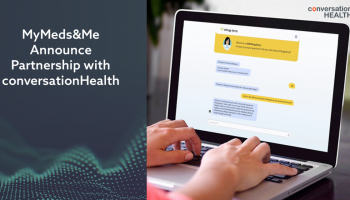At first glance, receiving an invitation to mark an important MHRA milestone with esteemed industry colleagues in Edinburgh sounded like an excellent opportunity to catch up with pharmacovigilance and regulatory colleagues. Edinburgh is just a short flight from London and the city is steeped in history, culture and science. How could I say no? However, this offer also included an invitation to take part in the afternoon debate:
“With the changes in society and increased use of electronic media, the role of the health professional in Yellow Card reporting will be diminished”
I was asked to argue for the motion, in all likelihood presenting to an audience filled with said healthcare professionals. Those who know me well will know that I’m happy to take a controversial standpoint on topics that I feel strongly about. This debate appeared to afford me with a platform to passionately implore healthcare professionals, regulators and the pharmaceutical industry to embrace the many benefits of harnessing online patient reporting to further enrich the knowledge of medicine safety and identify risks at the earliest opportunity. However, this focus on the patient and the ubiquitous use of electronic media will, I believe, lead to a diminished role for HCPs in the future. This may well be an unpopular stance, but one I agreed to take in order to engage discussion with all those involved in pharmacovigilance as we met to commemorate 50 years of the Yellow Card scheme in the UK.
Patient-centricity is one of the latest buzzwords in the industry, ‘trending’ since the DIA Annual Meeting last year. Whilst keen observers would note I’m generally not a fan of slogans and fads, there seems no better a home for ‘patient-centricity’ or ‘focus on the patient’ as adverse event reporting. It is well recognized that patient reports enhance signal detection and enable earlier recognition of safety issues [i]. Given the significant level of under-reporting of adverse events by HCPs (Only between <1% – 6% [ii] of suspected ADRs experienced by patients are reported) and the apparent appetite from patients to share their experiences, as seen in social media and patient forums globally, I believe that we need to simplify reporting processes and enable all patients to report online with ease.
Clean data direct from source, without alteration, is the life-blood of drug safety organisations. PV specialists evaluating the safety of medicines rely upon rapid access to clean, complete, consistent data from source and patients ultimately are that source. It is essential to capture this data and therefore build a true picture for future signal detection activities.
Watch my presentation below:
The 50th anniversary of the Yellow Card scheme is a significant milestone and an opportunity to recognise the value of the scheme together with the leading position of the MHRA in the effective regulation of medicines, underpinned by science and research. The scientific conference promised excellent speakers, presentations and discussion. In my next blog I plan to summarise some of the takeaway messages from this key meeting and look forward to continuing the debate with other commentators.
- [i] Hammond IW et all, Comparison of the quality of spontaneous adverse drug reaction reports received from consumers versus healthcare professionals in 2003. Pharmacoepidem Dru Saf 2006;
- [ii] Hazell et al, Under-Reporting of Adverse Drug Reactions – May 2006, Drug Safety, Vol. 29, Issue 5
Moride et al, Under-reporting of adverse drug reactions in general practice – Oct 2003









